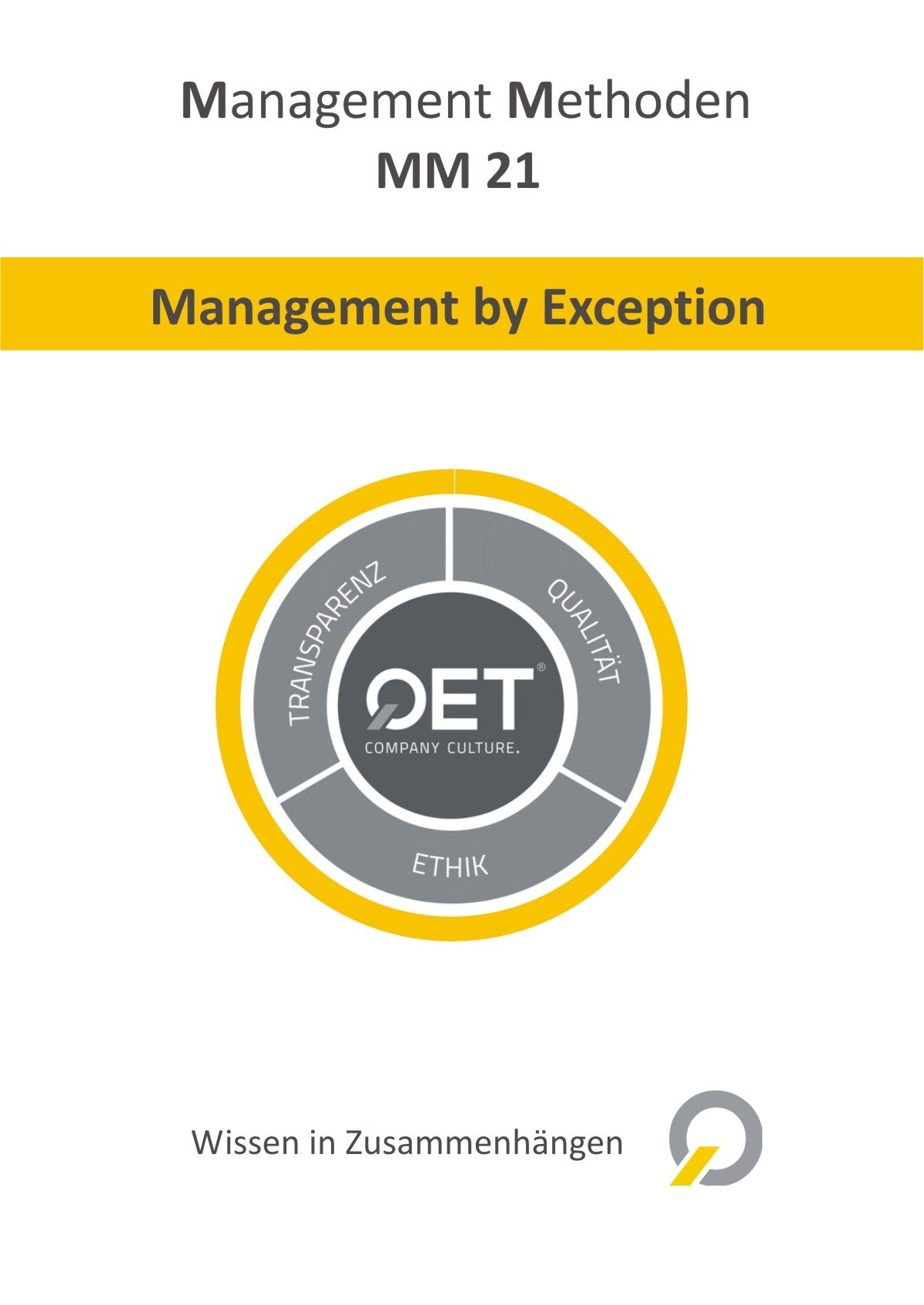QET Corporate Culture
MM 21 Management by Exceptions
MM 21 Management by Exceptions
Couldn't load pickup availability
Management by exception translates roughly as leadership through intervention in exceptional circumstances. This leadership technique involves giving each employee their own area of responsibility, where they make all decisions independently on an ongoing basis. Intervention occurs only in exceptional cases, i.e., when the employee no longer knows what to do or the manager wants to have a say in a decision.
Management by exception often arises from management by delegation – namely, when an employee is gradually assigned ongoing tasks and responsibilities that eventually develop into an entire area of responsibility. A classic example of this can often be observed in accounting. An employee who initially has nothing to do with accounting is first given the authority to make entries, then, after a while, research tasks are added, until finally, for the sake of completeness, they are assigned the task of closing accounts.
Tasks that were previously the sole responsibility of managers are now delegated to individual employees and, in the form of accounting, have evolved into an entire area of responsibility. Now, line managers are only called upon in exceptional cases. The primary goal is to relieve the manager's workload. They no longer have to perform routine work and can concentrate on leadership. Management by exception—as is common with management by delegation—often sets goals and evaluation criteria that are then monitored by management.
In the context of:
Q: Q01, Q05
E:
T: T07, T09, T14
Share

